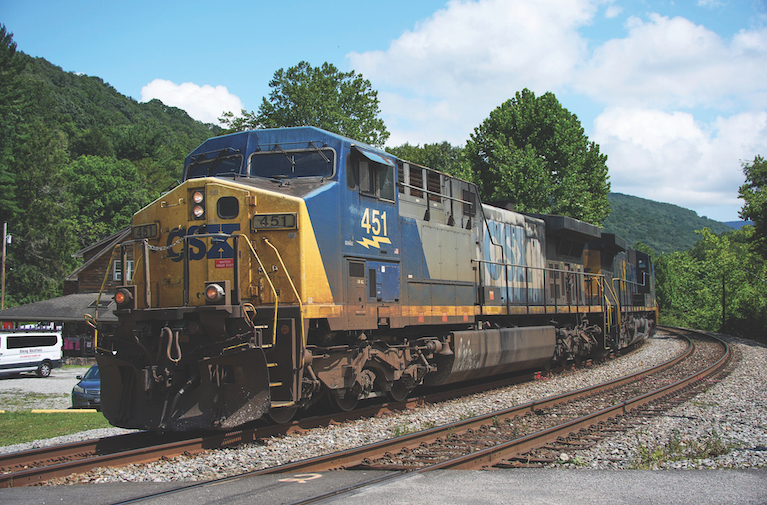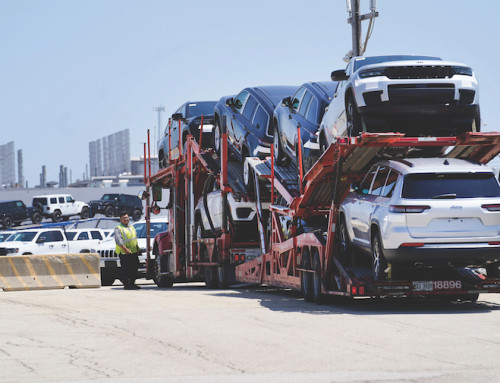Investors last week said they looked past a 22 percent drop in CSX’s third quarter earnings and focused on the direction the railroad operator’s new CEO might take it and the possibility of any strategic deals.
CEO Steve Angel said he promised to focus on making CSX the best-performing railroad company in the nation.
Without promising a merger, Angel said he would consider any strategic opportunities that make sense for shareholders. He also reminded investors that he ran industrial gas supplier Praxair for a decade before the opportunity to merge with rival Linde came up.
“The way these things work — these strategic opportunities — you’ve got to wait for the right timing. You’ve got to wait for when the conditions are right,” Angel said. “So what you do in the interim, you run the company to the best of your ability every day, and you create value that way. And so, if and when that time comes, you’re going into that discussion from a position of strength.”
The Jacksonville, Fla.-based company last week said it earned $694 million, or 37 cents per share, in the quarter. That’s down from $894 million, or 46 cents per share a year ago.
Without a $164 million goodwill impairment charge, however, the company would have earned $818 million, or 44 cents per share.
The adjusted figure topped the 43 cents per share that analysts surveyed by FactSet Research had predicted.
CSX’s performance has suffered during much of the past year because of construction projects that limited the company’s flexibility and reduced capacity.
CSX completed repairs from Hurricane Helene and a major tunnel renovation in Baltimore last month. Its performance improved throughout the quarter.
The average speed of its trains increased to 18.9 mph, the fastest level since 2021. CSX also delivered 87 percent of its shipments on time in the quarter.
CSX is one of the largest railroad operators in North America, operating in the eastern United States.
Last week’s report was the first since Angel took the job late last month. The railroad firm is under pressure from investors, such as Ancora Holdings, to find another railroad firm to merge with, so CSX can better compete with the merged Union Pacific-Norfolk Southern railroad company if that $85 billion deal gets approved.
Both of CSX’s possible merger partners — BNSF and CPKC — have said they aren’t interested in a deal, however, because they believe the industry can better serve customers through cooperative agreements and avoid the potential headaches that come with a merger.
Most industry observers say CSX and BNSF will be at a disadvantage if the Union Pacific-Norfolk Southern merger is approved.
That transcontinental railroad company will be able to shave more than a day off delivery times because it won’t have to hand off shipments between railroad operators in the middle of the country.
So far, CSX and BNSF say they can achieve most of the benefits of a merger through cooperative agreements instead.









